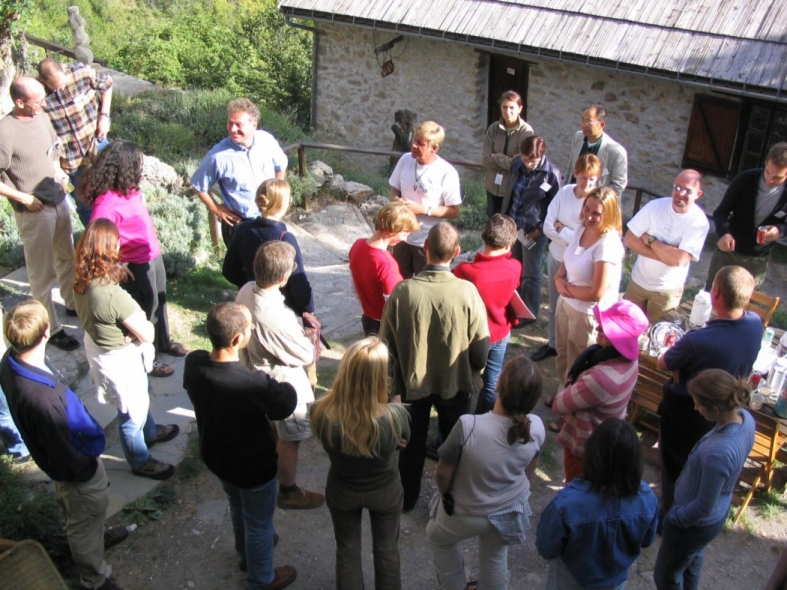35 students and 25 professors studied vulnerable ecosystems under global change during two weeks at Peyresq, Haute Provence, France
Peyresq, Haute Provence: une université d'été étudie la fragilisation des écosystèmes naturels face aux changements globaux
By Rik Leemans and Wolfgang Cramer
Pollution, habitat fragmentation and changes in climate and land use disturb ecosystems regionally and globally. In Peyresq (Haute Provence, France), 35 graduate students from all European countries, Turkey, China, Chile and Indonesia, participated in a summer school to learn how to assess the consequences of these environmental changes, from September 14-27. The school was financed by the AVEC programme of the European Commission. It will enable them in their later professional careers to better determine the vulnerabilities of ecosystems and the people that depend on them.
Renowned scientists from all over the world presented their latest scientific insights and understanding on ecological processes and scenario development. The students questioned all speakers thoroughly and learned from the comprehensive lectures and the additional background information that was provided to them. An often-returning topic in the lectures was that different stakeholders must be involved in the vulnerability assessments. Before dinner, an 'aperitif talk' was given on more controversial issues, such as ethics or human health, or through experiences from people, who daily apply ecological knowledge to their work, such as Mr. P. Frapa from Parc Naturel Regional du Luberon. An excursion introduced the student to the landscape of the Haute Provence, with emphasis on agricultural issues of the Valensole Plateau with its lavender, the history of the Ste Croix reservoir and the village Les Salles de Verdon, and management of the Parc Naturel Regional du Verdon.
Between lectures, the students worked themselves on specific group assignments. Each small group, with students from different countries and expertise, developed its own vulnerability assessment for certain regions. They, for example, focussed on the Sami people in Sweden, on drought and flood risk in the Netherlands, and on combining developmental and environmental issues in Vietnam. The resulting assessments provided new insights in emerging ecological risks in these areas and gave possibilities to adapt to possible impacts.
Overall, the AVEC summer school brought 35 students, 6 tutors and 25 scientists to the picturesque village of Peyresq, much in the spirit of humanism and open exchange that is nurtured there. The beautiful surroundings, the emerging autumn colours, the Provencal cuisine and the hospitality of the staff in Peyresq helped to make this advanced study course a major success for everyone involved.

Photo: 35 students of a summer school for the study of vulnerable ecosystems under global change arrive at Peyresq, Haute Provence, France (Photo: Wolfgang Cramer)
The reproduction of this text is permitted free of charge. For further information please contact the authors or the press office of the Potsdam Institute for Climate Impact Research, c/o Anja Wirsing, anja.wirsing@pik-potsdam.de, Tel. +49-331-288-2507. Information can also be found on the project website http://www.pik-potsdam.de/avec





